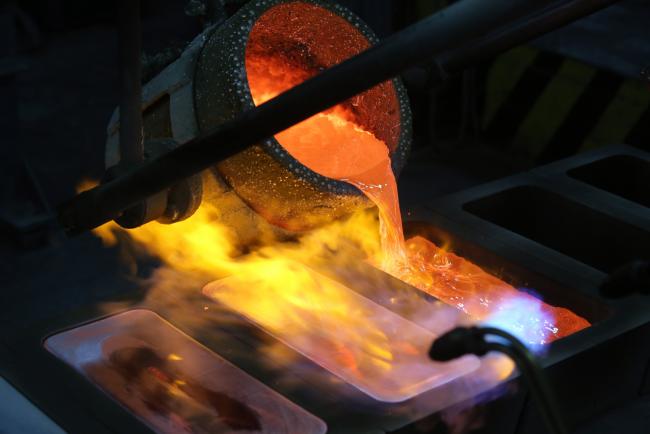(Bloomberg) -- Traditional hedges gold and the yen have performed poorly since the beginning of the U.S.-China trade war, but that could now change given the more dovish monetary backdrop, according to JPMorgan Chase & Co.
A combination of a Federal Reserve that has stopped tightening policy and investor positioning that suggests the two assets are under-owned, could see their performance as hedges improve in 2019 and 2020, wrote strategists including John Normand in a note Friday. It’s premature to call for an end to trade tensions, which could last for years, so investors should explore the value of tactical hedges and strategic underweight positions, they argued.
“Although some markets like developed market equities have begun recovering from May’s trade war escalation, it’s premature to extrapolate stability,” they wrote. Summer activity could show a renewed slump in manufacturing, risk premia are not very apparent and positioning adjustments have been modest, they said.
The impact of the trade war on markets has been difficult for Wall Street strategists to predict. Normand’s own JPMorgan (NYSE:JPM) says the S&P 500 Index end up anywhere from 2,550 to 3,200 (it closed just below 2,860 Friday). Morgan Stanley thinks the dispute could increase the potential of a recession. And numerous predictions in recent months that the dollar might decline have been stymied.
While tactical hedges can improve the returns of defensive positions, they require skill to time entry and exit points, JPMorgan argued. Though strategic underweights avoid the need for this “nimbleness”, they could end up hurt returns as and when trade tensions ebb, it said.
Since the trade war began last year, defensive trades that have generated positive absolute returns and attractive risk/reward ratios included U.S. versus international equities and Treasuries over emerging market local debt, the strategists wrote. The yen and gold, and owning Treasuries against U.S. stocks, have been poor hedges, they said.
